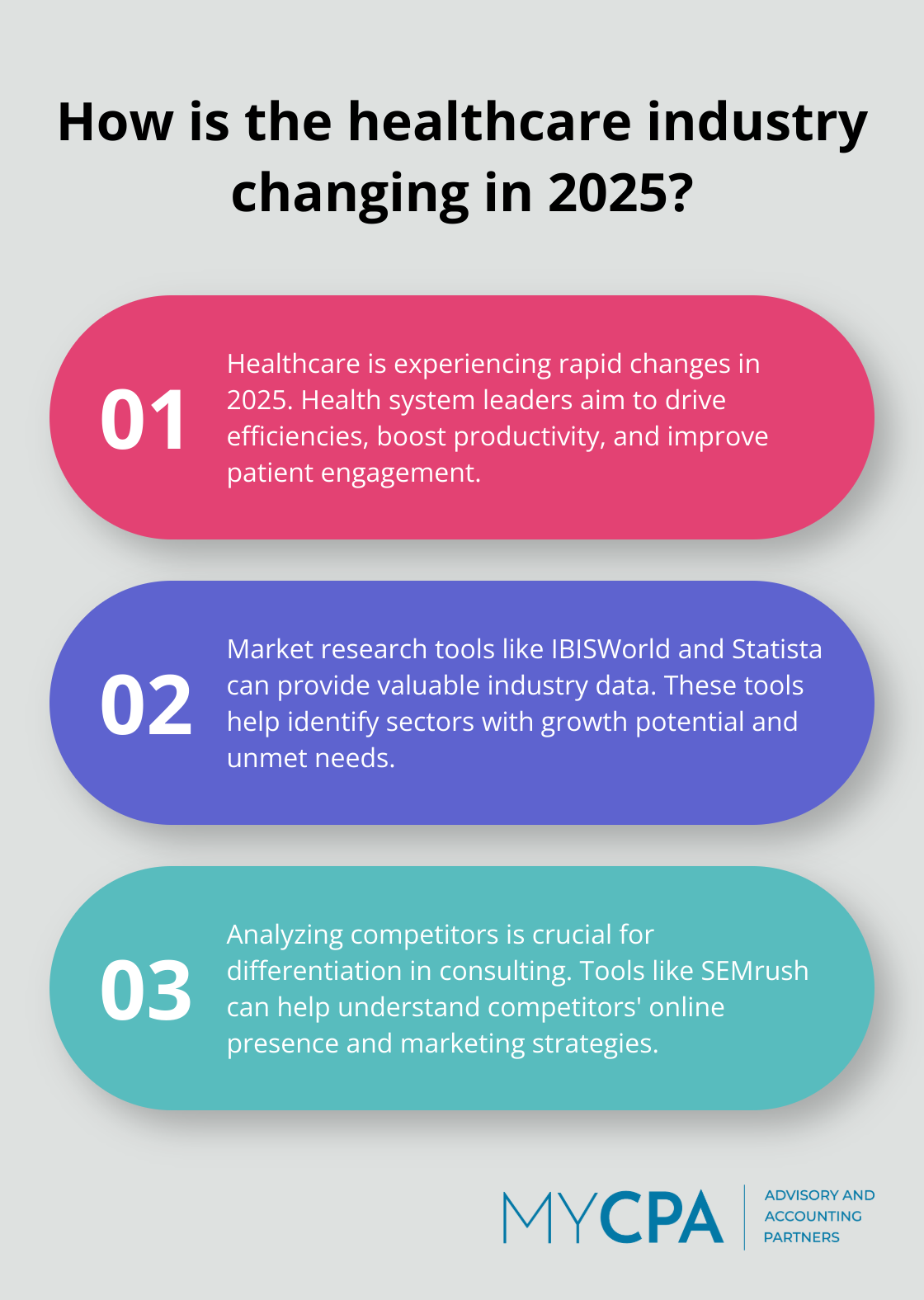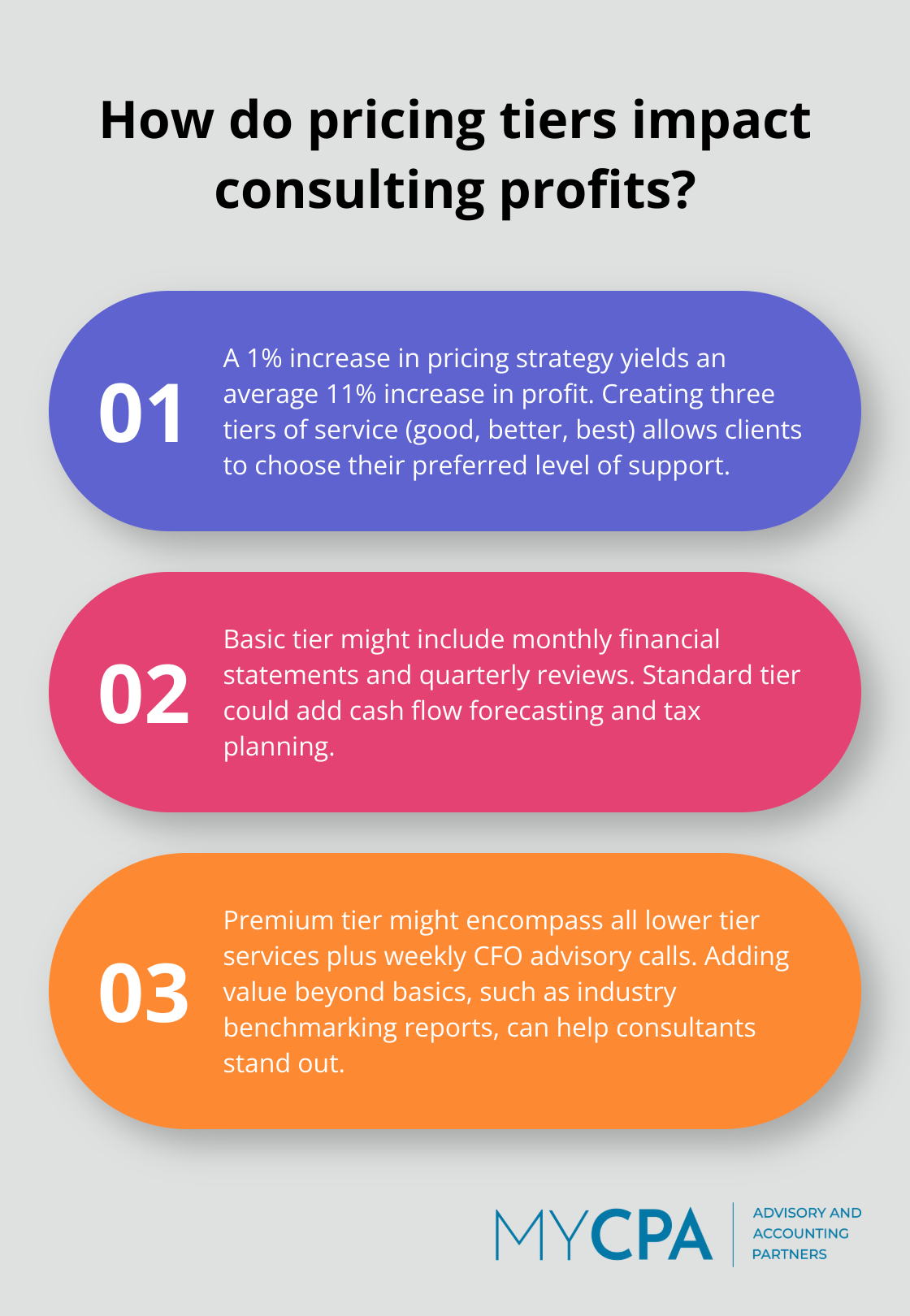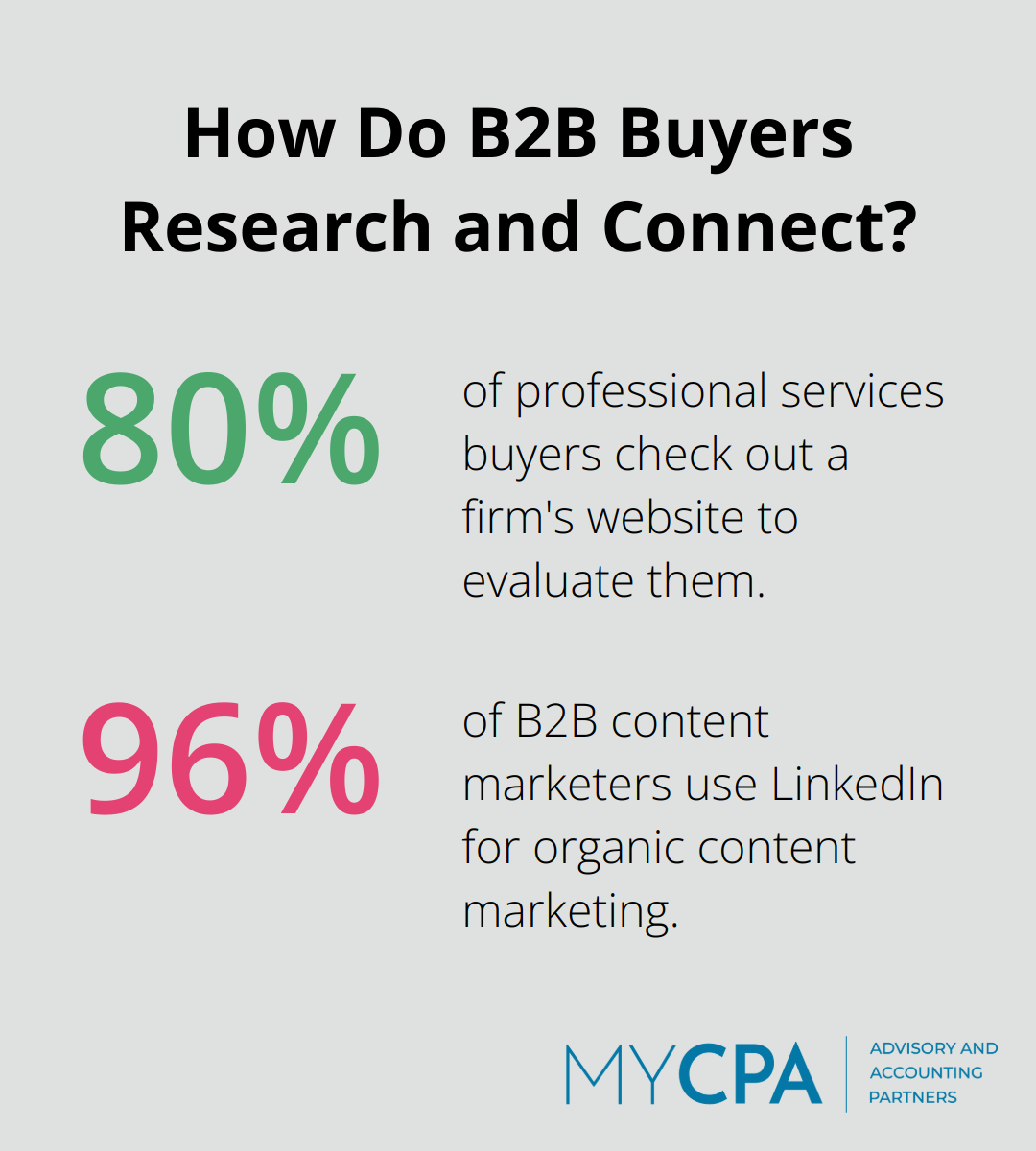
At My CPA Advisory and Accounting Partners, we’ve seen firsthand how a well-crafted consulting business strategy can transform a fledgling practice into a thriving enterprise.
The consulting landscape is competitive, but with the right approach, you can carve out a profitable niche and build a sustainable business.
This guide will walk you through the essential steps to develop a winning strategy that sets your consulting business apart from the competition.
Start by taking a hard look at your skills, experience, and passions. What problems can you solve better than anyone else? If you excel at streamlining financial processes for small businesses, that’s a valuable niche to explore. Focus on what you do best instead of trying to be all things to all people.
After you’ve identified your strengths, research industries that could benefit from your expertise. Use tools like IBISWorld or Statista to gather market data. Look for sectors with growth potential and unmet needs. The healthcare industry is experiencing rapid changes, with health system leaders aiming to drive efficiencies, boost productivity, and improve patient engagement in 2025.
Analyze your potential competitors. What services do they offer? How do they price their offerings? What gaps can you fill? Tools like SEMrush can help you understand your competitors’ online presence and marketing strategies. The goal isn’t to copy others, but to find ways to differentiate yourself.
Create detailed profiles of your ideal clients. Consider factors like company size, industry, location, and specific pain points. Your ideal client might be a mid-sized manufacturing company (struggling with cash flow management). The more specific you can be, the better you can tailor your services and marketing efforts.
Once you’ve gathered all this information, refine your niche. Try to find the intersection of your expertise, market demand, and unique value proposition. This sweet spot is where you’ll find the most success and satisfaction in your consulting business.

The process of defining your niche and target market is ongoing. As you gain experience and the market evolves, you may need to adjust your focus. The next step is to develop your service offerings based on this well-defined niche.
Identify the most common problems your target market faces. For financial consultants, this might include cash flow management, tax planning, or financial reporting. Build your core service package around solving these key issues. Include a clear scope of work, deliverables, and timeline in your package. This transparency helps set client expectations and demonstrates the value you provide. Consider offering a “quick win” as part of your initial engagement to build trust and showcase your expertise.
Pricing is both an art and a science in consulting. Create three tiers of service: good, better, and best. This approach allows clients to choose the level of support that best fits their needs and budget. Ensure pricing adjustments are aligned with market expectations and cost structures.

For instance, a basic tier might include monthly financial statement preparation and quarterly reviews. The standard tier could add cash flow forecasting and tax planning. The premium tier might encompass all of the above plus weekly CFO advisory calls and custom financial modeling.
To stand out in a crowded market, offer services that go beyond the expected. This could include industry benchmarking reports, access to proprietary financial tools, or invitation-only networking events for clients.
One effective approach is to create a results accelerator program. This not only adds value but also improves client outcomes and satisfaction.
Your unique selling proposition (USP) should clearly articulate why a client should choose you over competitors. Focus on the specific results you deliver and the unique approach you take.
For example, a strong USP might center on proactive, year-round engagement with clients. Don’t just crunch numbers; provide ongoing strategic advice to help businesses make informed financial decisions every day.
Review and refine your service offerings based on client feedback and market trends regularly. The consulting landscape constantly evolves, and your services should adapt to stay relevant and valuable to your clients. As you perfect your service offerings, the next step is to build a strong brand and marketing strategy that will attract your ideal clients.
A strong brand forms the foundation of any successful consulting business. It’s not just about having a logo or a catchy tagline. It’s about creating a compelling narrative that resonates with your target audience and sets you apart in a crowded marketplace.
Brand storytelling matters because it helps brands connect with an audience and demonstrate why that audience should go with a specific brand or product. Your brand story should reflect your unique journey, values, and the problems you solve for clients. For example, if you specialize in helping small businesses navigate complex tax regulations, your story might focus on how you’ve saved clients millions in potential penalties through proactive planning.
In today’s digital age, your website often serves as the first point of contact with potential clients. Invest in a professional, user-friendly site that clearly communicates your value proposition. Include case studies, testimonials, and a blog to showcase your expertise.

A survey by Hinge Marketing revealed that 80% of professional services buyers check out a firm’s website to evaluate them. Make sure your site makes a strong first impression.
Content marketing establishes thought leadership and attracts clients. Share valuable insights through blog posts, whitepapers, and webinars. Focus on addressing your target market’s pain points and offer practical solutions.
HubSpot reports that companies that blog 11 or more times per month get almost 3x more traffic than those blogging 0-1 times per month. Consistency plays a key role in content marketing.
Networking and referral partnerships can significantly boost your consulting business. Attend industry events, join professional associations, and collaborate with complementary service providers.
A study by Hinge Research Institute found that high-growth professional services firms are 3x more likely to use formal referral programs than their no-growth peers. Consider implementing a structured referral program to maximize these opportunities.
Use platforms like LinkedIn to share your expertise and engage with potential clients. According to the Content Marketing Institute, 96% of B2B content marketers use LinkedIn for organic content marketing.
Post regularly, engage in industry discussions, and share valuable content to build your brand presence. Social media builds relationships, not just broadcasts your services.
A successful consulting business strategy requires careful planning, market insight, and a commitment to excellence. You must define your niche, craft compelling service offerings, and build a strong brand to position yourself for success in the competitive consulting landscape. Your strategy should evolve as your business grows and market conditions change.

The key to long-term success lies in continuous improvement and adaptation. You should invest in your skills, expand your knowledge base, and refine your processes to stay ahead of industry trends. Embrace new technologies and methodologies that can enhance your service delivery and client outcomes (this approach will set you apart from competitors).
Now is the time to put your consulting business strategy into action. Start by implementing one aspect of your plan, such as refining your niche or developing a new service offering. At My CPA Advisory and Accounting Partners, we offer tailored financial services and business advisory support to help consultants achieve tax efficiency and confident financial management.








Privacy Policy | Terms & Conditions | Powered by Cajabra